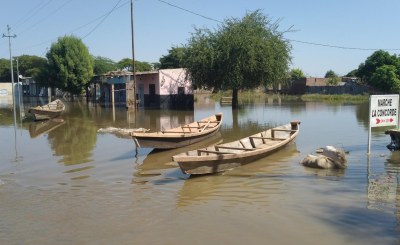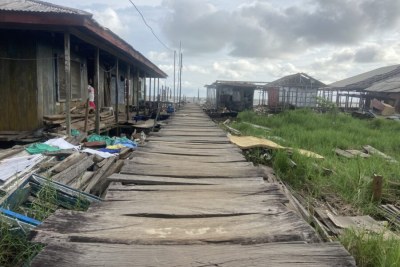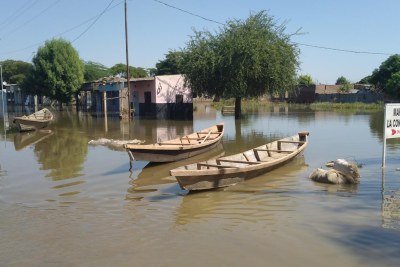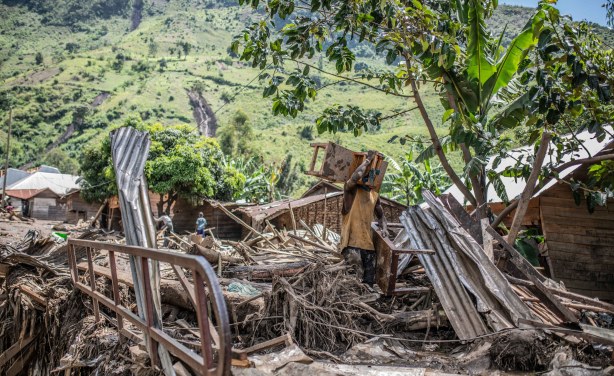-
Africa: Climate Finance - Developed Countries Ready to Fulfil U.S.$100 Billion Pledge By Year End
Premium Times, 21 June 2023
The OECD in its most recent analysis (2022) put the figure mobilised by developed countries in 2020 at $83.3 billion for climate finance. Read more »
-
Africa: Negotiations Must Accelerate Climate Action and Save Vulnerable Countries #AfricaClimateHope
IPS, 19 June 2023
Vulnerable countries, banking on robust climate negotiations, want an inclusive funding package to help them with the devastating impacts of climate change. Read more »
-
Africa: The View(s) From Africa - What to Make of the Bonn Climate Talks?
African Arguments, 16 June 2023
We gathered a diverse panel to break down the significance and outcomes of the crucial pre-COP28 meeting for Africa. Read more »
-
Africa: A Climate Finance Goal That Works for Developing Countries #AfricaClimateHope
IPS, 15 June 2023
After years of failing to meet climate finance commitments, the new climate finance goal under discussion this week in Bonn is critical, but without supporting reforms of the… Read more »
-
Africa: COP28 Must Deliver for the Most Vulnerable
allAfrica, 12 June 2023
COP28 President-Delegate, Dr. Sultan Al Jaber, met with heads of delegations and key negotiating groups including those from the Least Developed Countries (LDC) and Small Island… Read more »
-
Nigeria: Nigeria Needs to Take Climate Action - 4 Urgent Steps to Start With
The Conversation Africa, 11 June 2023
Climate change is not just a buzzword or a topic for political debates. It is a real and pressing issue that affects every aspect of our lives. The effects of climate change are… Read more »
-
Kenya: Kenya Seeks Fair, Equitable Climate Action at Bonn Conference
IPS, 7 June 2023
The Climate Change envoy to the President of Kenya has asked Kenya's and, by extension Africa's negotiators at the ongoing climate conference in Bonn, Germany, not to put much… Read more »
-
Africa: COP28 - Climate Talks Should Ensure Fossil Fuel Phaseout
HRW, 5 June 2023
In Bonn, Ahead of COP28, Confront UAE on Oil, Rights Read more »
-
Africa: The EU's Landmark Carbon Tool Presents Major Catch-22 for Africa
African Arguments, 15 June 2023
The CBAM will push producers to decarbonise yet make it harder to do so. Our modelling suggests the policy could cut Africa's GDP by $25 billion. Read more »
A Climate Finance Goal That Works for Developing Nations
After years of failing to meet climate finance commitments, the new climate finance goal under discussion in Bonn, Germany is critical, but without supporting reforms of the global financial architecture we risk repeating past mistakes, writes Richard Kozul-Wright for Inter Press Service.
The current goal of mobilising U.S.$100 billion per year for developing countries by 2020, which has not been met, will expire in 2025. However, U.S.$100 billion is a fraction of what is needed to support developing countries in achieving their climate goals. According to the United Nations Framework Convention on Climate Change (UNFCCC), developing countries require at least U.S.$6 trillion by 2030 to meet less than half of their existing targets. Additionally, climate finance primarily takes the form of loans, exacerbating sovereign debt issues.
Instead of being based on arbitrary targets, the new goal must rigorously quantify and respond to countries' demonstrated needs and be tracked based on an agreed methodology that can prevent the double-counting and significant overestimations of the past.
Developing countries face the double challenge of simultaneously investing in development and in climate mitigation and adaptation, while addressing the costs of loss and damage.
The United Nations Conference on Trade and Development (UNCTAD) highlighted four priorities for climate finance: addressing debt distress in low-income countries, maximising the impact of IMF's Special Drawing Rights, leveraging government-backed development banks, and mobilising private finance.
These priorities offer a starting point to meet the urgent challenge of climate change and support all developing countries in achieving their climate goals.
InFocus
-
The coastal town of Ayetoro in Nigeria, once a vibrant community known as the "Happy City," is being devastated by rising sea levels and storms, reports Africa Arguments. Over ... Read more »
-
As the United Nations Framework Convention on Climate Change prepares for its annual Conference of Parties (COP) in Dubai, United Arab Emirates in November 2023, many African ... Read more »










